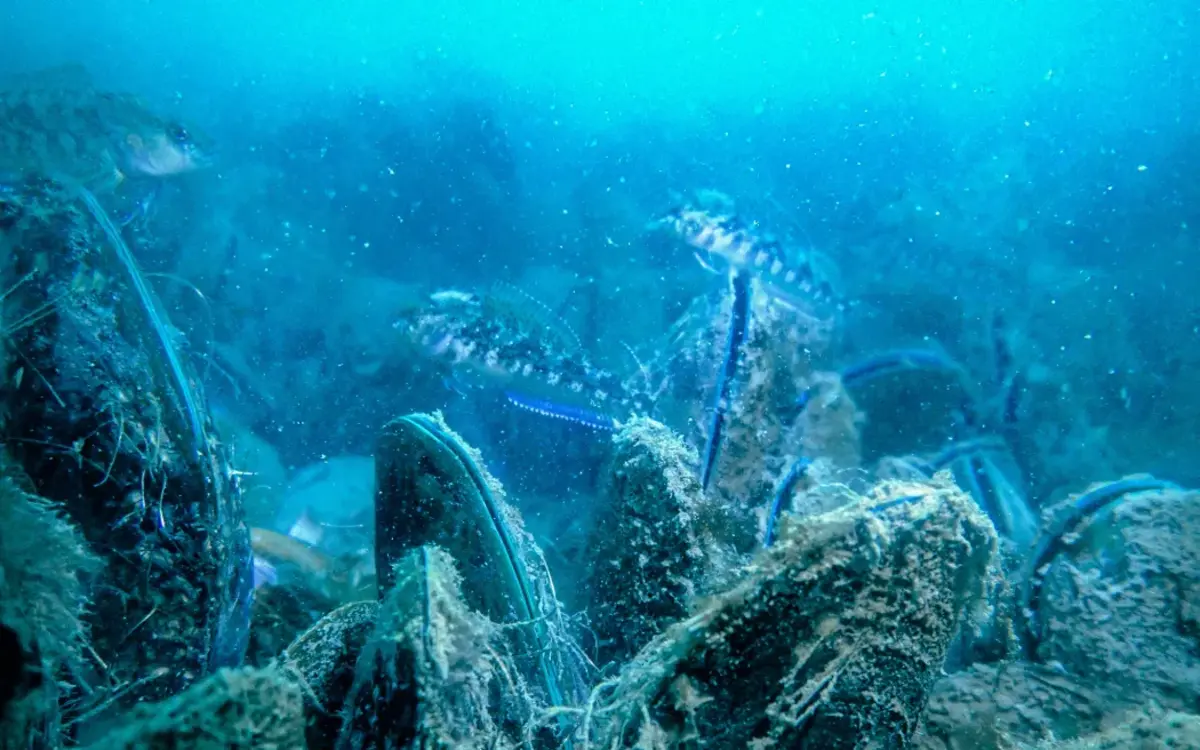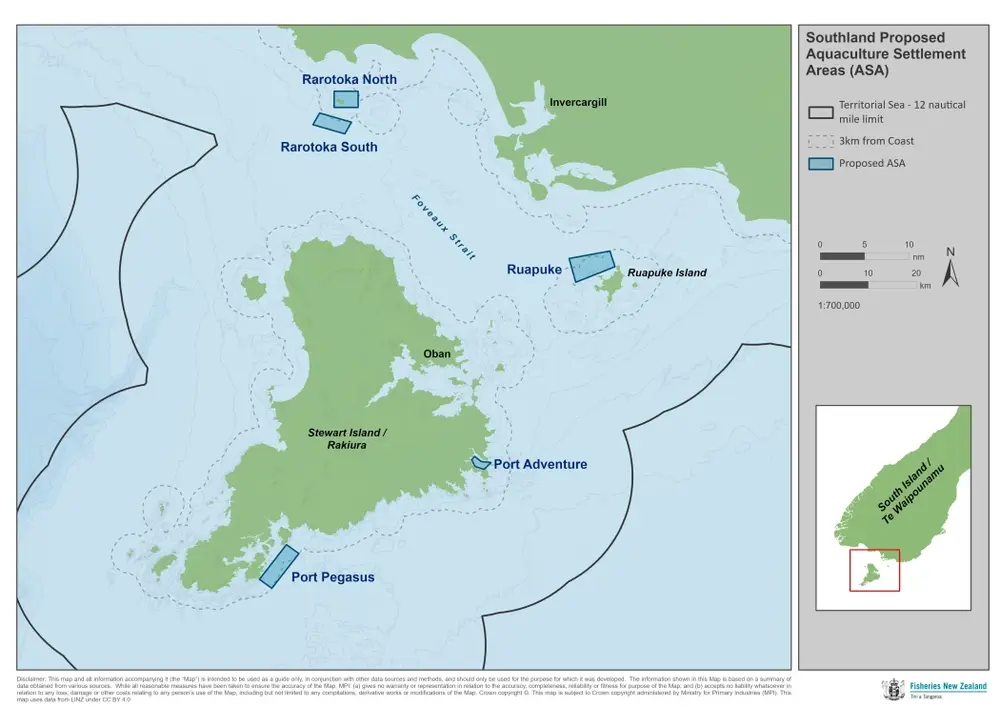Nearly 9000 hectares to be assessed for offshore aquaculture in Southland
Reporting by RNZ
15 November 2024, 11:47 PM
 The areas to be assessed are suitable for mussel, salmon and seaweed farming, Shane Jones says. Photo: Supplied / Emilee Benjamin
The areas to be assessed are suitable for mussel, salmon and seaweed farming, Shane Jones says. Photo: Supplied / Emilee BenjaminThe government has set aside close to 9000 hectares for Ngāi Tahu and the Crown to assess for offshore aquaculture in Southland.
Oceans and Fisheries Minister Shane Jones announced the five new Aquaculture Settlement Areas in Invercargill on Friday, saying they include areas suitable for salmon, mussel, and seaweed farming.
They are offshore from Port Pegasus, Rarotoka South, Rarotoka North, Ruapuke, and Port Adventure, in the Foveaux Strait, near Rakiura and Invercargill.
Iwi are promised the equivalent of 20 percent of all consented aquaculture space under the Māori Commercial Aquaculture Claims Settlement Act 2004.
Jones said the government was committed to its goal of aquaculture becoming a $3 billion industry by 2035.
"Making space for this kind of exploration with Ngāi Tahu today will bring the certainty needed for jobs, opportunities and export dollars tomorrow," he said.

A map of the Southland's proposed Aquaculture Settlement Areas. Photo: Supplied / Office for Minister Shane Jones
All current fishing within the zones could continue during the exploration phase and any space Ngāi Tahu wanted to develop into aquaculture ventures would be subject to the resource consent process, he said.
Te Rūnanga o Ngāi Tahu Kaiwhakahaere Justin Tipa said they were keen to explore sustainable aquaculture for food security and to ensure a healthy environment.
Six Aquaculture Settlement Areas were recently declared in Otago, including three offshore zones north of Dunedin, two onshore sites near Moeraki and another close to Karitāne.
"When we approach these opportunities, we are thinking of the generations to come after us," Tipa said.
"Oceans are warming, and the world population is growing. Aquaculture is becoming essential to providing people with healthy protein, while reducing the pressure on wild fish. The technology makes it possible for farms to thrive in the open ocean."
Aquaculture - when done well and in the right places - had big potential, creating jobs and boosting the economy, Tipa said.
The next steps included detailed surveying of each site.
Published by permission